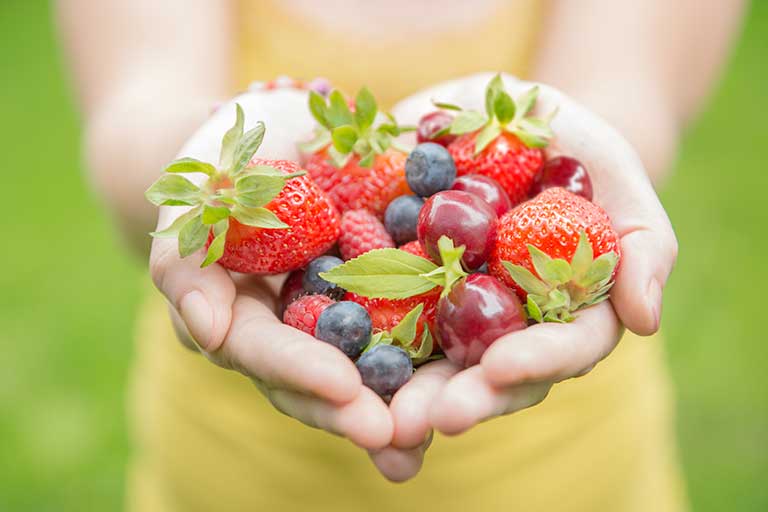Century Park Blog

Something has changed with the way we view food.
Following the cultural shifts that occurred after the Industrial Revolution and World War II, we saw the world reanalyze its view on agriculture.
A massive push for convenience over quality occurred. Profit over nutrition. "Fake food" over "real food." Processed foods became the norm, resulting in a significant increase in cases of obesity in the United States. Instead of eating nutrient-dense foods, we began reaching for foods packed full of sugars, fat and salt.
Fortunately for us, "clean eating" has surfaced in recent years as the answer to our changed agricultural system. Clean eating, however, has become a trend in the sense that it is a temporary interest for some people who pursue it.
But the truth is, if there is one trend you could adhere to for the rest of your life, clean eating just might be the best one.
A primary reason clean eating has become so popular is its potential to help you lose weight. A study from the Harvard School of Public Health reports that subjects who increased their consumption of whole grains, whole fruits and vegetables, along with decreasing processed food consumption and large quantities of red meat over a 20-year span, gained significantly less weight than a control group.
"Eating clean means eating natural foods," asserts Douglas S. Kalman, director of clinical nutrition at Miami Research Associates. "Foods that don't have added sugars, chemicals or unhealthy fats."
Studies show that eating "clean" can boost your immune system, increase your happiness, improve brain function, help put on more muscle and even improve the quality of your sleep.
In addition, Dr. Julie T. Chen writes that clean eating will make you naturally more attractive:
"When you eat 'clean,' you are taking in food in the form that Mother Nature intended, and traditionally, that generates anti-inflammatory effects and has beneficial impact on your overall health and your weight, skin and hair. So, when you are eating food in its natural form, you'll be boosting your health as well as the natural glow of your skin and hair."
The benefits of clean eating, however, are not always obvious. Messaging often tells us that processed foods are perfectly fine, but it's important to evaluate our food selections, carefully considering the best option for you and your family. In addition, nutritionists have begun to push for a reevaluation of the ways we eat, as well as the ways we shop.
For instance, produce is often outsourced to foreign countries. Chemicals like ethylene, a petroleum-derived flammable gas, are injected into vegetables before they're ripe in order to artificially mimic the ripening process. Frozen dinners are often considered healthy options, but the consumer needs to consider that the plastic containers could be transferring unhealthy chemicals into the food when microwaved.
In an effort to save money, we have begun consuming foods that have lost some of their natural nutritional value, replaced with addictive additives like sugar and fats.
So, the biggest question may be: Where do we begin?
Because clean eating has become so popular, self-proclaimed heath gurus have made millions of dollars by providing "solutions" that can perpetuate unhealthy eating habits. Many encourage specific diets that worked for them, but may actually result in malnourishment in others. In the DrudgeReport article "'Clean food' is a dangerous fad...," Ian Marber, nutritional expert, says that many health gurus have "little understanding of the responsibility that comes with discussing food. Everyone eats, so everyone thinks they are an expert, but these people are injecting an unwelcome degree of paranoia into society, without any scientific backing."
For example, in its recent book Making Sense of Allergies, the Sense About Science organization warns readers that essential information and life-saving actions are being diluted in a sea of over-diagnosis. It cites studies that show that 34 percent of parents reported food allergies in their children but only 5 percent actually had an allergy.
So, if we can't turn to health gurus for the easy answers, what approach do we take?
Terry Walters, a graduate of the Institute of Integrative Nutrition, is trying to motivate people to nourish themselves and their families through "clean eating" in her cookbook Clean Start. But she warns that making drastic changes may not provide the desired results. She encourages making a slow shift: "In the long run, a slow transition is going to be easier on your tastes, your lifestyle, your digestion, your mood and even your wallet."
Walter encourages what she calls eating the rainbow: "If you're eating the colors of the rainbow, and all five tastes (sweet, sour, salty, bitter and pungent); and your food is minimally processed, then chances are you're getting a balanced diet."
Basically, the best way to start eating clean is to attempt to at least eat cleaner.
Here are some simple steps to get you started:
- Start shopping at grocers that get their produce locally. This helps family-owned businesses thrive, meaning your healthier food choices are also supporting your community and neighbors.
- If you can't find a local produce seller, just start by shopping on the outer aisles of your grocery store. These are the places that typically hold fruits, vegetables, meat, fish, etc., and generally have the least processing.
- If you're unfamiliar with how to prepare these foods, pick-up a cookbook and try some new recipes!
- Consider removing these from your diet: soda, fast food, artificuial sweeteners, energy or caffeine drinks, sweets and microwavable meals.
- Try adding these to your diet: water (8-10 cups a day), lean, fresh proteins, green tea, whole grains and fresh vegetables.
The information in this article is not intended to be a substitute for professional medical advice. Talk to your physician before starting any new treatment, exercise program or diet.

